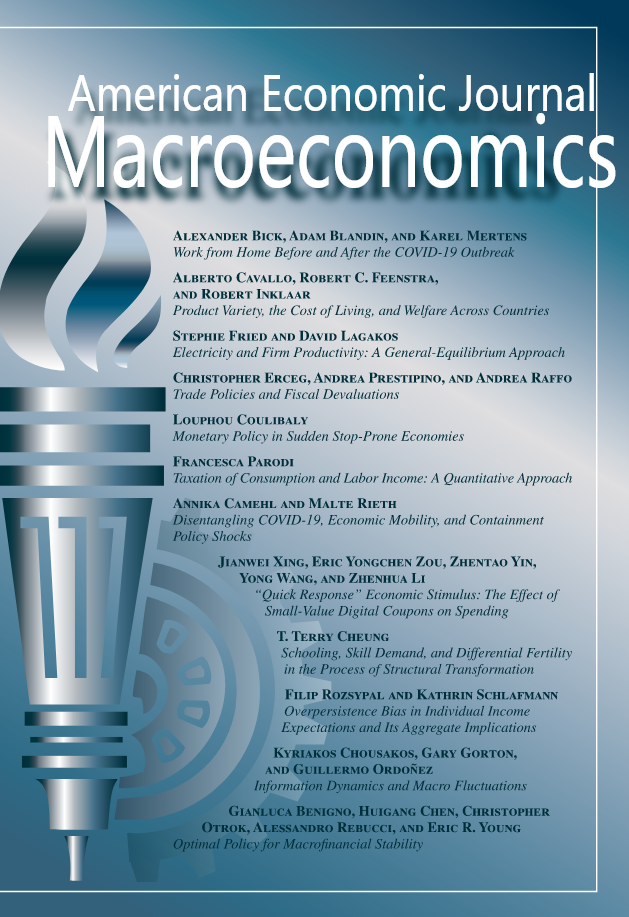Optimal Currency Areas with Labor Market Frictions
IF 5.7
1区 经济学
Q1 ECONOMICS
引用次数: 0
Abstract
I study efficiency and optimal monetary policy in a two-country monetary union with frictional labor markets. With heterogeneity in labor market frictions, the constrained efficient allocation generically cannot be achieved even if productivity shocks affecting each country are the same. The second-best optimal policy targets smaller inflation and output gaps in the more sclerotic labor market. A quantitative calibration to the eurozone implies welfare gains from redefining the union’s inflation target to put more weight on its sclerotic members. (JEL E23, E24, E31, E52, F33, F45)存在劳动力市场摩擦的最优货币区
我研究了具有摩擦劳动力市场的两国货币联盟的效率和最优货币政策。由于劳动力市场摩擦的异质性,即使影响每个国家的生产率冲击相同,约束的有效配置通常也无法实现。次优政策的目标是在更僵化的劳动力市场上缩小通胀和产出缺口。对欧元区进行定量校准意味着,通过重新定义欧盟的通胀目标、让其僵化的成员国获得更多权重,可以获得福利收益。(凝胶e23, e24, e31, e52, f33, f45)
本文章由计算机程序翻译,如有差异,请以英文原文为准。
求助全文
约1分钟内获得全文
求助全文
来源期刊

American Economic Journal-Macroeconomics
ECONOMICS-
CiteScore
8.20
自引率
1.70%
发文量
58
期刊介绍:
American Economic Journal: Macroeconomics focuses on studies of aggregate fluctuations and growth, and the role of policy in that context. Such studies often borrow from and interact with research in other fields, such as monetary theory, industrial organization, finance, labor economics, political economy, public finance, international economics, and development economics. To the extent that they make a contribution to macroeconomics, papers in these fields are also welcome.
 求助内容:
求助内容: 应助结果提醒方式:
应助结果提醒方式:


